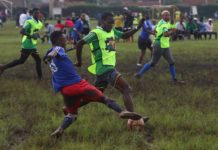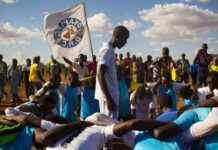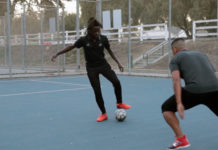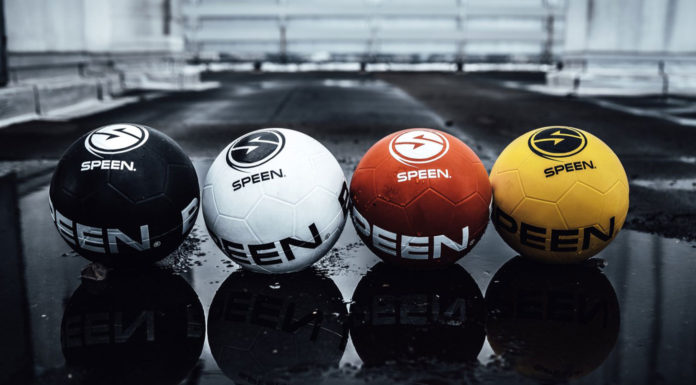Based in the United States, high end goal supplier Crossbar has its eyes set on a global impact. All of the company’s profits go to building schools in developing countries, and their first project surrounds the Tumaini School in Kenya. Needing to raise the necessary funds by the end of the year, we take a look at Crossbar’s ambitious endeavor and the inspiration behind its founders, siblings Taylor Ross and Jordan Grosso.
While we’ve seen tremendous strides made in the last few years alone, the United States’ relative soccer infancy means the game hasn’t fully permeated into its cultural zeitgeist. Soccer-focused careers outside of playing professionally remain few and far between, but with this infancy comes opportunity. We’re still laying the foundation of American soccer culture, and what we’re doing now will have a have tremendous impact on future fans.
Along with her brother Jordan Grosso, Taylor Ross is taking advantage of this unique time. Through Crossbar, the siblings are molding a bright soccer future for not just the U.S., but the rest of the world as well.
Ross’ journey begins in high school, where she started her own apparel company, Eleven.
“It did whatever sales-wise — it was a high school side hustle,” Ross said. “But I learned something really, really important with Eleven that has influenced everything else I do. Making money isn’t fulfilling to me.”
After graduating high school, Ross went on to play collegiately at the University of Rhode Island, where her path of discovery would continue throughout several countries and continents, all in the name of the beautiful game.
It was in college that Eleven transitioned from a money-making venture into a philanthropy organization. NCAA restrictions prevented Ross from profiting off of soccer, so she worked with her network of college teammates, alumni, friends, and family to collect used soccer cleats for kids in Ethiopia. The new direction of her work was realized.
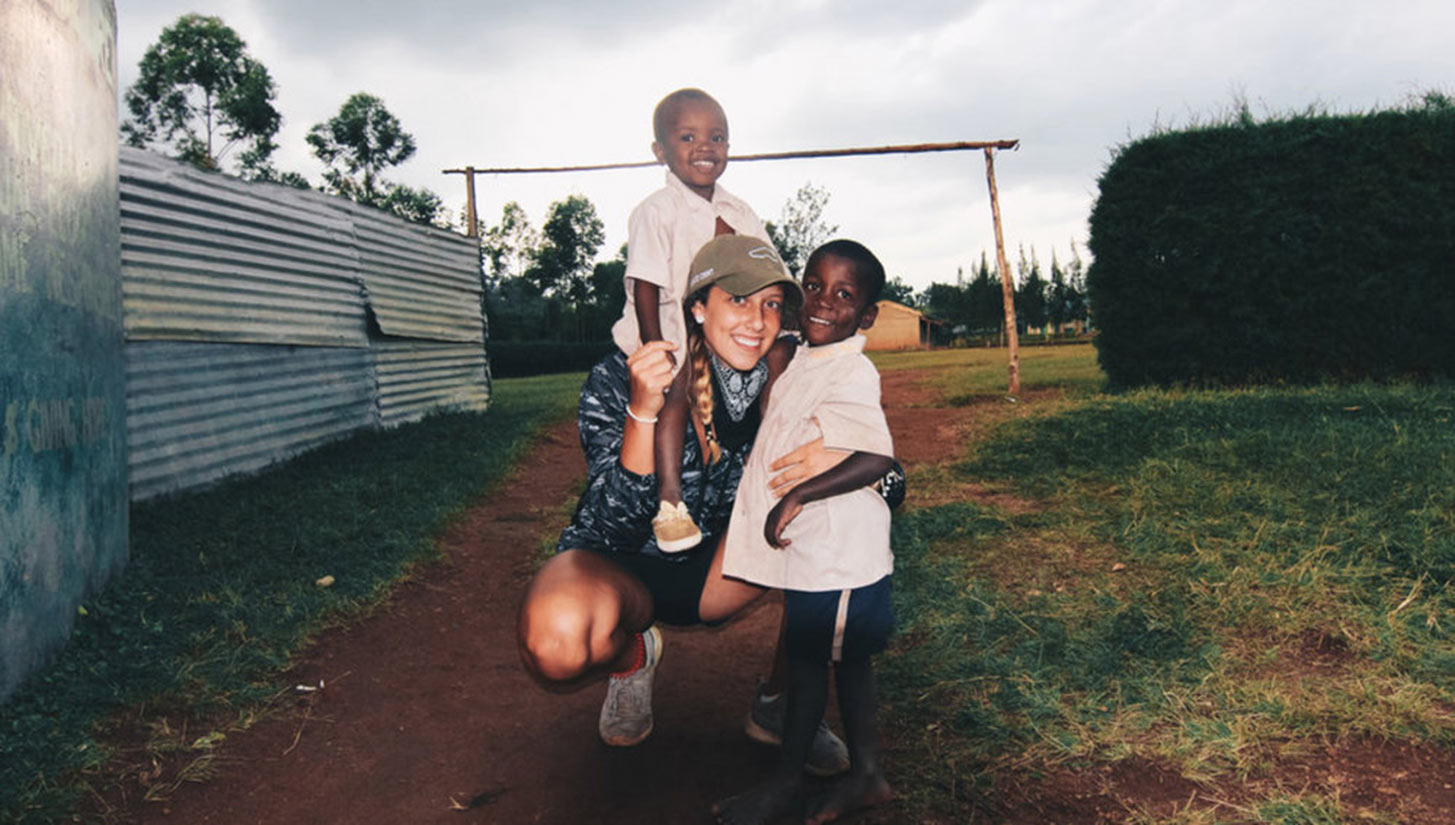
“The first trip [to Ethiopia] was amazing,” Ross said. “We learned so much, but we really wanted the next trip to be bringing new cleats and equipment. We didn’t want the kids to think they’re only worth hand-me-down cleats and not new ones.”
With the new goal in mind, Cleats Count came into existence, and through merch sales, it raised money to buy new cleats and bring those to Kenya. On the second trip, Ross went to the Tumaini School, where the seeds of Crossbar would be planted. The stars seemed to align during the visit. Everything from the timing to the school’s name — tumaini means “hope” in Swahili — seemed to line up perfectly.
A seven-school soccer tournament ended with the handing out of cleats to students, and the impact was overwhelming. In between trips of cleats and equipment, Ross and Grosso were talking about taking it to the next level. How can they affect these children’s lives with long-lasting and high impact contributions? Cleats and sports equipment are great — every child needs them, even more so when they are impoverished. But kids grow, interests change, and a career as an athlete is a pipe dream.
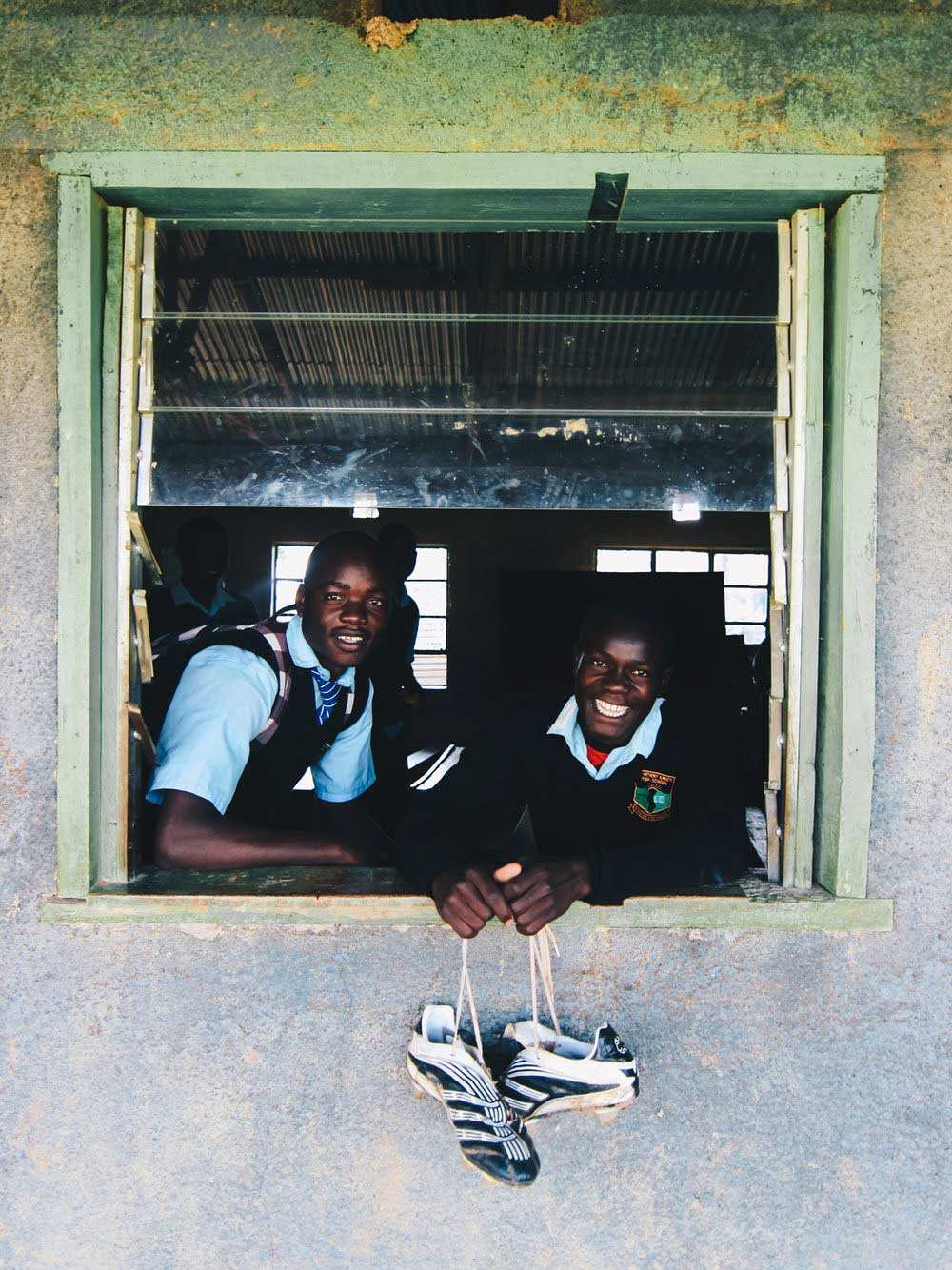
“Tumaini was a special experience,” Ross said. “Unlike last trips, we actually stayed on the compound that is the school, so we were in a lot closer proximity to the students but also the teachers. While we were there news had come that without serious work and upgrades to the school and its facilities it would have to be shut down.”
This is the kind of impact Ross and Grosso and just been discussing a few weeks earlier. The timing, while extremely unfortunate, was uncanny. The siblings were presented their new goal on the spot — build a new school for the kids at Tumaini, and keep education in their lives. But t-shirt and sweatshirt sales weren’t going to raise enough money in the timeframe necessary to prevent the school’s shutdown.
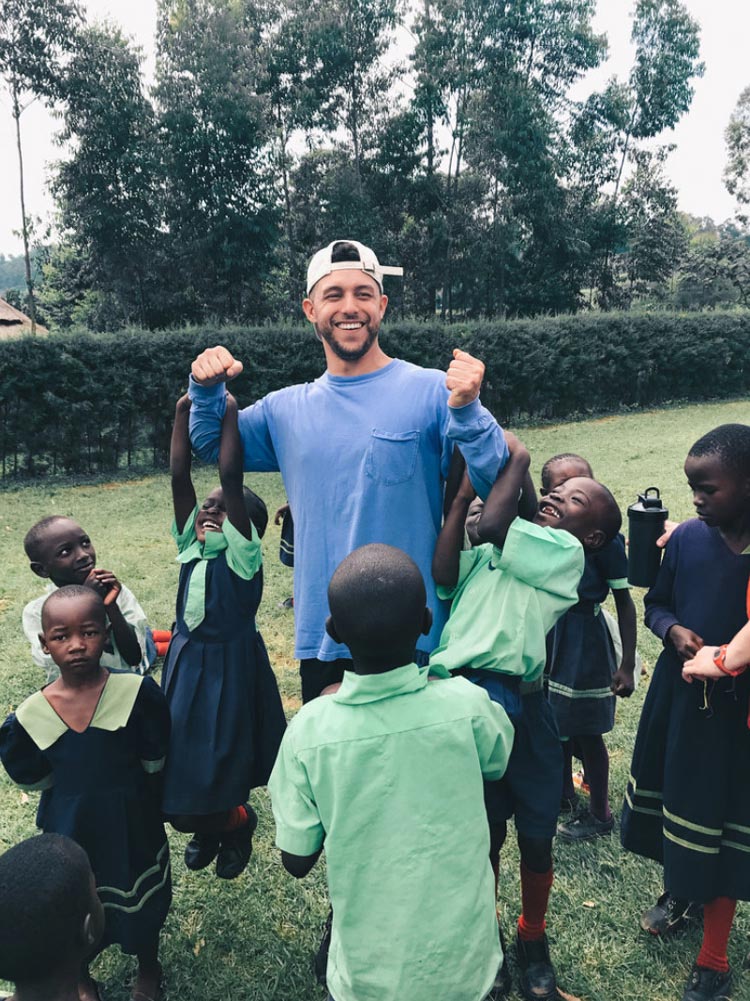
They were looking for a high margin product that was still related to soccer, and through Cleats Count Ross was put in touch with a Rhode Island alum that had connections to some of the top sports equipment manufacturers in the country. A series of deliberations landed on the perfect product that met all their needs — soccer goals.
Everything seemed to be falling into place, from aspects of the company as broad as what their flagship product would be to more specific details like logo design.
“My brother and I were going back and forth with logo ideas, and at one moment we both showed a logo, and we had drawn the same one,” Ross said.
Crossbar currently has a line of full-size, youth, futsal, and small-sided soccer goals, but they’re looking to expand their portfolio of equipment as well. After building Tumaini, the goal is to add benches and stadium seats, among other things.
Staying in high margin products is critical for Crossbar, as rebuilding schools are large scale projects. They are dedicated to being as selfless as possible, evident in their website’s “Meet the Team” page, which blocks out the faces of each member of the organization.
“Who we are isn’t actually important,” Ross said. “Sure we need to have the skills and connections for the business to be successful, but the point isn’t about us. This company isn’t to show ourselves off, it’s to help make an impact through the best sport in the world.”
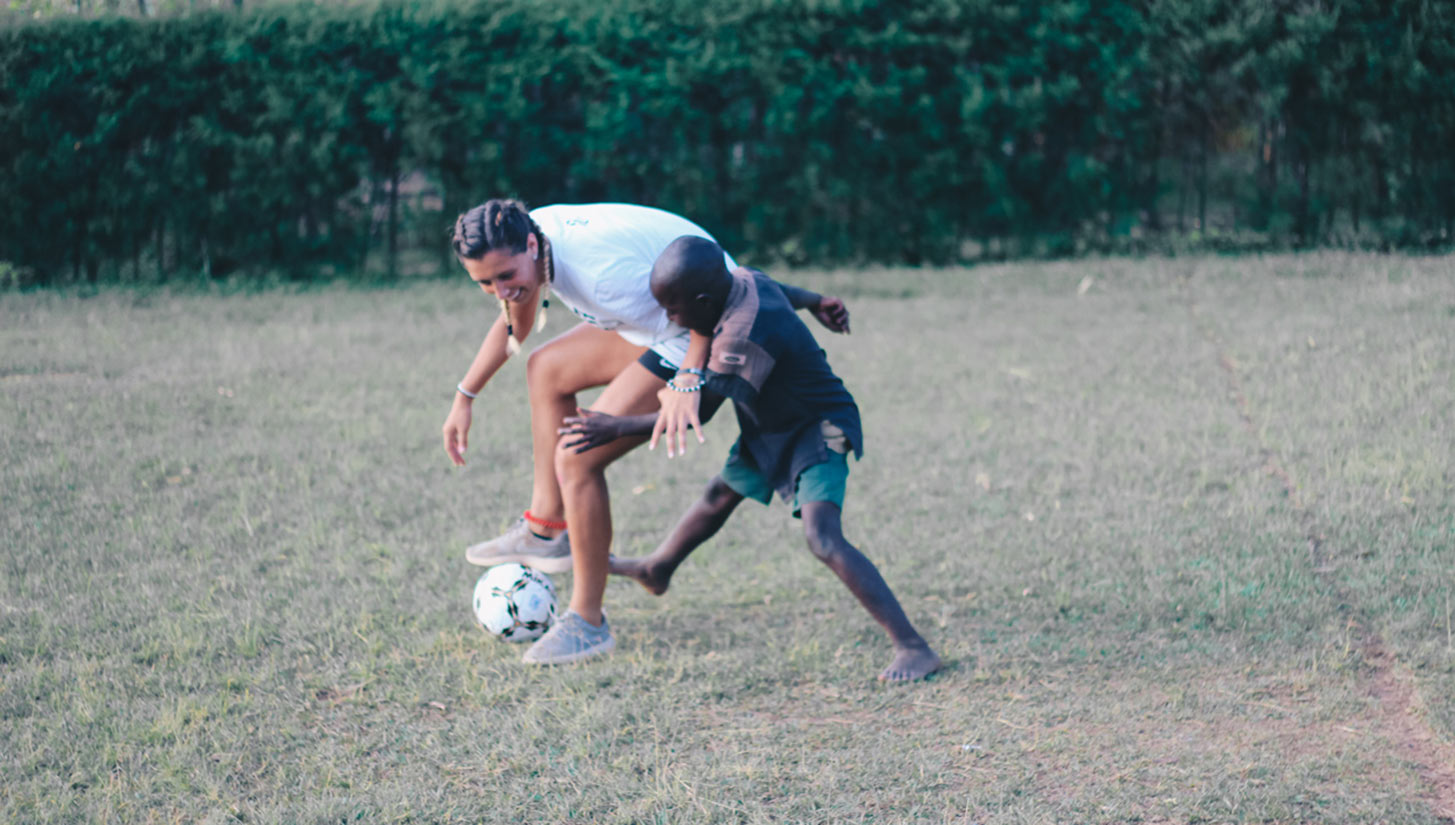
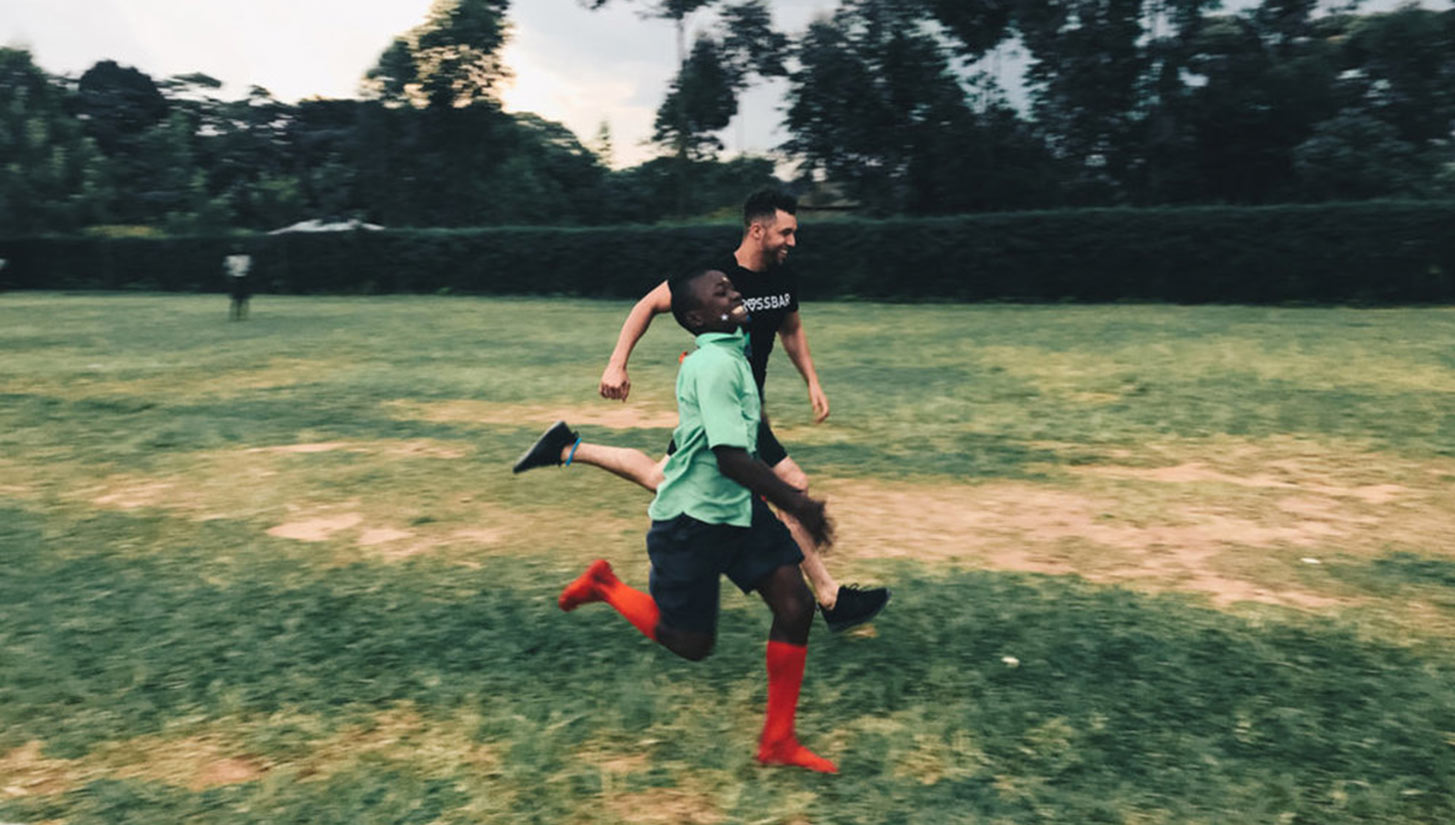
So, here is where we currently are — the deadline for Tumaini is coming (like less than 30 days coming), and Crossbar is on a mission to make sure the school doesn’t close for good. They already have $50,000 ready through sales and fundraising, but that isn’t enough, and time is running out. They launched a campaign to help raise awareness and call on soccer fans from around the country to join in and participate in any way they can. You can donate via their Fundly page.
It’s time to get involved, spread the word, and find your own tumaini.
Photos courtesy of Crossbar. Be sure to follow Crossbar’s journey to rebuild schools across the world by following them on Instagram and Twitter.





